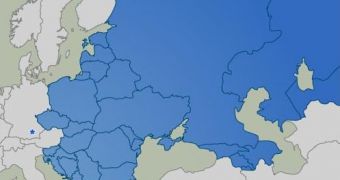Microsoft is putting its money where its mouth is. Vahe Torossian, President of Microsoft Central and Eastern Europe, indicated that the Redmond company's promises to Central and Eastern Europe are indeed taking shape and that the software giant is ready to step up its game by increasing the volume of financial investments in the region. Microsoft has repeatedly placed great emphasis on the potential of Central and Eastern Europe, identified as the fastest growing region worldwide. The company's Unlimited Potential initiative is responsible for ensuring a strong focus on driving education, innovation and ultimately economical success in Central and Eastern Europe, and the latest example of Microsoft's involvement is an investment of over $200 million in the region for the next three years.
“There is always a danger that brave words may fail to translate into action. (...) I’m proud to see that our concept - unleashing potential through the power of software - provides opportunity for Microsoft and opportunity for the region’s education systems, economies and citizens. It is this synergy, and the renewed $200 million Microsoft commitment, which has ensured that the words we spoke (...) continue to be matched by deeds across Central and Eastern Europe,” Torossian revealed.
The President of Microsoft Central and Eastern Europe stressed the importance of the Unlimited Potential initiative, as well as of the $200 million investment in the context of the global financial crisis, whose effects are indeed being felt across the region. The Redmond company is committed to offering financial support and resources to Central and Eastern Europe, from Windows Starter Edition to refurbished PCs, to the Office System, but also through programs such as PC@Home, the Subscription Computing Program, and the development of the Microsoft Innovation Centres.
“In the next year we will continue to work with partners to shape our products and solutions to meeting the specific needs of the region - and maintain innovative momentum under difficult conditions. A core focus will be on tackling three fundamental requirements that will ultimately decide if Central and Eastern Europe’s citizens can harness the power of the knowledge economy - affordability, relevance and access,” Torossian added.

 14 DAY TRIAL //
14 DAY TRIAL //